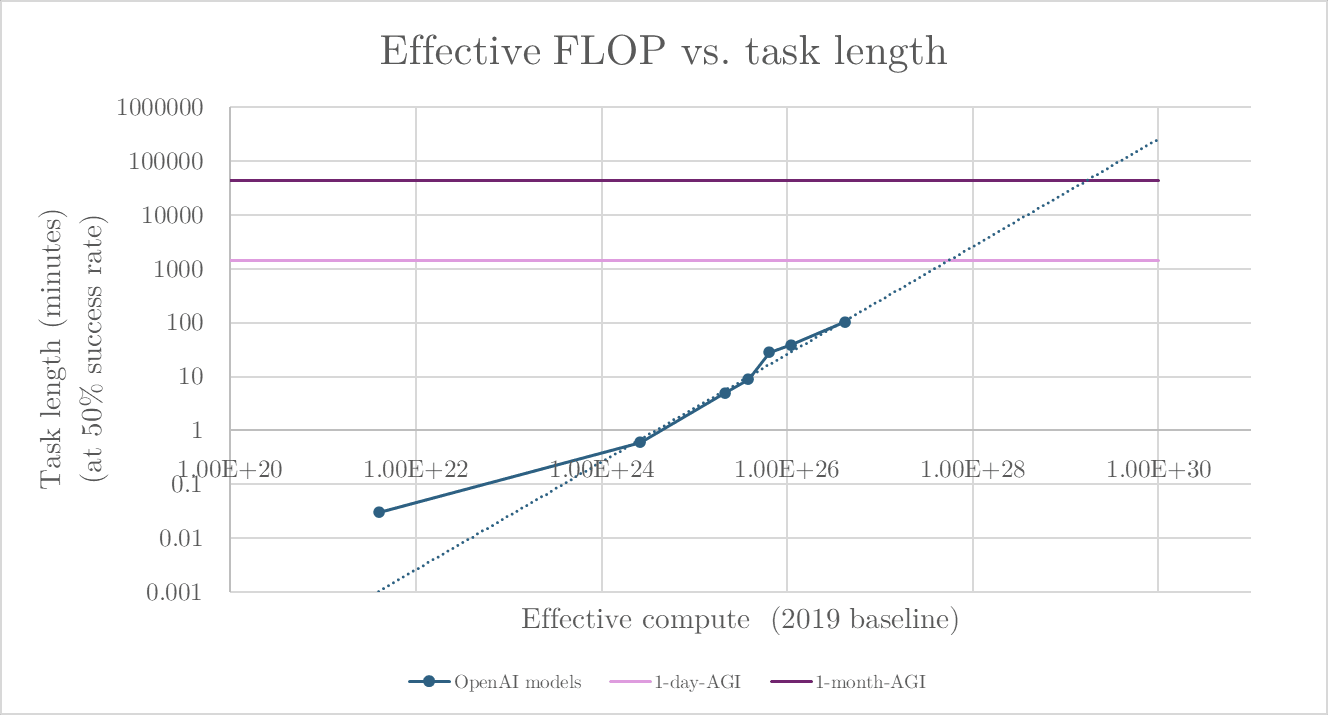by Trevor Chow, Basil Halperin, and J. Zachary Mazlish
[Note: This is an appendix to "AGI and the EMH: markets are not expecting aligned or unaligned AI in the next 30 years"]
One naive objection would be the claim that real interest rates sound like an odd, arbitrary asset price to consider. Certainly, real interest rates are not frequently featured in newspaper headlines – if any interest rates are quoted, it is typically nominal interest rates – and stock prices receive by far the most popular attention.
The importance of real rates. However, even if real interest rates are not often discussed, real interest rates affect every asset price. This is because asset prices always reflect some discounted value of future cash... (read 548 more words →)

This is interesting. Caveating the below as a "research note comment" in a similar spirit to the caveats around the above being a "research note":
1. Generalizing the model to include bottlenecks
- I generalized the model to have R be CES over L and C, rather than Cobb-Douglas --> to allow for bottlenecks
- Based on conversation with Tom Houlden, though he hasn't reviewed anything I've written here
- [a la Ben Jones (2025) or Jones and Tonetti (2026), if references are useful]
- In the most extreme version, this would be R = min(L, C)
- (This notion of substitutability must be different from that discussed in the post / in the original AIFM model, but I don't follow what's going
... (read more)